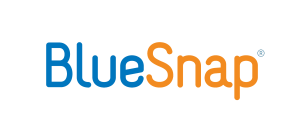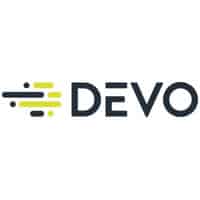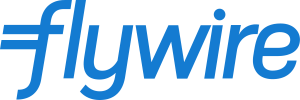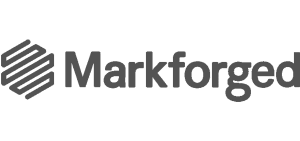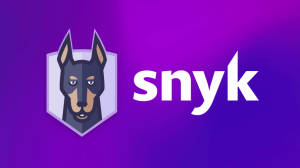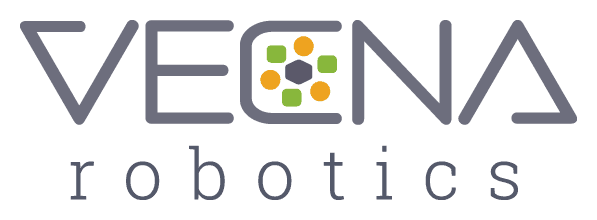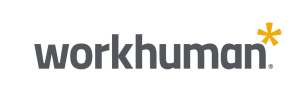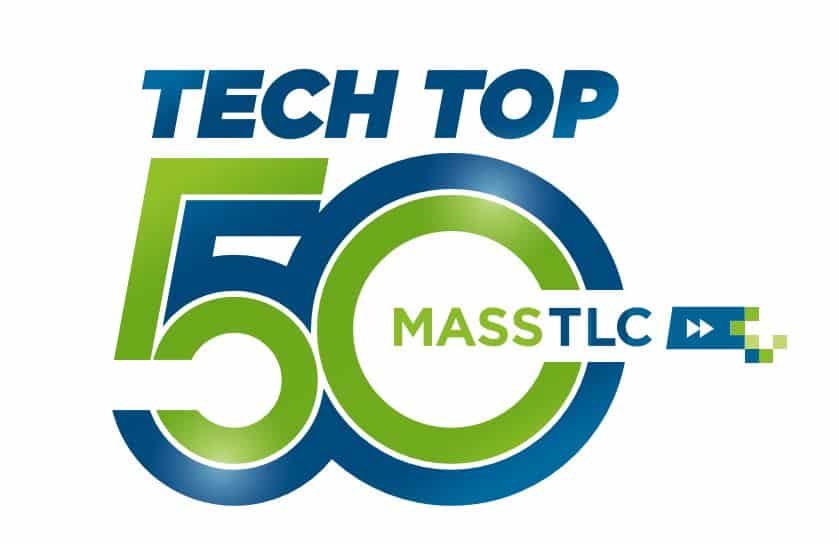The year 2020 has without a doubt been exceptionally unusual, but at MassTLC we have been heartened to see how, in spite of the challenges, our community members have stepped up to support their employees, their customers, their partners, other companies, and the broader community. We have been so impressed that we just couldn’t let the year end without recognizing the companies, individuals, and transformations that have made a positive impact during these trying times.
For that reason, we are pleased to recognize the Tech Top 50. The Tech Top 50 celebrates those that have truly made an impact in 2020 across five categories: Business Accomplishment, Community Impact, Company Culture, COVID-19 Response, and Innovation.
Read on to be inspired!
In the words of their nominators, meet the 2020 “Tech Top 50: Business Accomplishment” honorees.
This category recognizes companies for major accomplishments in 2020. Examples include consequential business transactions (mergers, acquisitions, going public/private, etc.) and significant business performance (doubling revenue or headcount) or transformations (ie, new business lines, going digital, or company restructuring).
___
|
BlueSnap’s mission has always been to find ways to reduce complexity, increase sales and improve cash flow for clients, and that mission has never been more important than during the COVID-19 crisis. As the pandemic progressed in 2020, the company amplified efforts to focus on B2B Payments and New Business Models. Many B2C and B2B businesses needed fast, innovative ways to digitize their payment processes to insure positive cash flow during the pandemic. BlueSnap found that many B2C businesses, who were previously hesitant to make their website transactional, were eager to set up inventory (OMS) and payments on their sites. At the same time, B2B businesses quickly shifted priorities to the digitalization of their invoicing and payment process to address the needs of a remote workforce and of maintaining a “corona-free” payment option. These new market demands helped accelerate BlueSnap’s growth in key markets and verticals including Healthcare, Education, Manufacturing, Logistics and SaaS. Additionally, as businesses looked for innovative ways to pivot their current business model, BlueSnap elevated offerings that supported new business models such as distributed sales models (franchises, marketplaces, dealerships), or building payments into the products they sell to clients (ISVs). As a result, BlueSnap experienced unprecedented growth in 2020, doubling revenue over 2019. |
|
On September 15, Devo announced a $60M round of funding led by Georgian Partners. Recognized by investors and industry executives alike, the cloud-based data analytics company recently expanded its advisory board, which will help Devo move to the next stage of growth in the security space. On the heels of its recent $60M funding round, the company has experienced 100 percent employee growth from 2019-2020, with an overall 50 percent headcount increase in the US, and has set a goal of 25 percent additional growth for the rest of this year. As part of that progress, the company is building out a Cloud Engineering team in Cambridge, MA, which already houses the company’s Data Science Center of Excellence and Marketing and sales operations. Earlier this year, Devo also announced record quarterly revenue in Q2 2020 and 80% year-over-year growth. This exponential growth came from an unprecedented expansion in the company as Devo grew its enterprise customer base by 48%., which came after the cloud-native data analytics and security company was awarded a $9.5M U.S. Air Force contract for Devo’s next-generation SIEM technology. Organizations ranging from Fortune 100 enterprises to government entities have chosen Devo to improve analyst workflow. Devo’s impressive roster of current customers also includes a North American professional sports league, a major European bank and insurance group, and a top-5 global apparel maker. The company has been recognized with several industry awards this year as well, emphasizing the impact its Security Operations Platform has had on the industry in just its first six months of deployment. |
|
Amid the COVID-19 pandemic Everbridge has remained singularly focused on its mission to keep people safe and businesses running during critical events. The company established the Critical Event Management (CEM) category serving more than 5,300 global customers, spanning the corporate, government, higher education, and healthcare markets. In 2020, Everbridge launched COVID-19 Shield, a Coronavirus Solutions offering designed to protect the safety of employees and customers, maintain business operations, safeguard supply chains, and reduce costs and liabilities stemming from the impact of the pandemic. In addition, the team launched Everbridge Control Center, the industry’s first physical security information management (PSIM) software platform. The Commonwealth of Massachusetts selected Everbridge as its new mass notification provider for statewide COMMalert program, and two national alerting system customers – one in the Middle East and another in Africa – will also be powered by Everbridge Public Warning, extending Everbridge’s platform reach to every major region of the world. These accomplishments came as the team transitioned to an almost entirely work-from-home-structure. For Everbridge, success is measured by how well the company supports and delights customers, many of whom are facing not only the Coronavirus pandemic, but severe weather events including wildfires and hurricanes. This year, Everbridge was able to be there for them at their most critical time of need and played a role in helping to keep their people safe and their operations running, the ultimate measure of success. |
|
In 2020, Flywire reached Unicorn status, one of just three fintechs in Massachusetts to reach that level. Flywire is a high-growth vertical payments company focused on digitizing historically complex, large-sum transactions. In February, Flywire raised an additional $120M in financing, led by Goldman Sachs, and acquired Simplee, a leading healthcare technology platform. The acquisition enables Flywire to address the growing challenges around patient engagement and healthcare affordability and empowers both patients and providers to settle payment faster and on their own terms. With Simplee, Flywire now powers four of the top ten US healthcare systems, supports more than 30% of US households, and processes more than $10 billion in patient payments per year. In April and May, Flywire partnered with Citi and the Boston Foundation to move over $3M to a supplier in China to procure much needed pieces of PPE for hospitals in the Boston area. The effort was spearheaded by a Harvard Business School student. It was a great example of collaboration across the Boston ecosystem to help in a time of crisis. In recent months, Flywire has also rolled out new capabilities to help its clients make the high cost of education and healthcare more manageable and affordable with tools like customized tuition payment plans for students and pre-service costs estimates for healthcare providers and patients. The $120M funding round was a significant accomplishment on its own, but since then, the company has continued to build on that success. The Simplee team and product, acquired in February, have been fully integrated into Flywire, adding significant new capabilities for the respective clients and reinforcing the company’s leadership position in the digital healthcare payments market. Across all verticals, Flywire continues to successfully execute against business goals and deliver value to new and existing clients. Additionally, Flywire continues to invest in its people and culture, with open roles across multiple business functions. |
|
In March 2020, Markforged was recognized as the fastest-growing company in the industrial 3D printing space and as the largest connected fleet of industrial 3D printers in the world according to The 2020 Wohlers Report, an extensive worldwide review and analysis of additive manufacturing and 3D printing. With its connected fleet of 3D printers, Markforged has been able to help customers and partners respond to the pandemic. The launch of the Digital Forge platform has powered this immense growth by providing Markforged customers with a platform which ties together printers and materials with a cloud-first software approach. With the Digital Forge, manufacturers are now able to print strong and durable parts in composite plastic and metal from anywhere in the world. Markforged’s cloud software architecture powers the Digital Forge and allows customers to bring their supply chain in-house instead of relying on suppliers across the globe. They are able to develop modern manufacturing operations that allow them to create parts directly where and when they need them, on demand. In addition, with the data from cloud-connected printers around the world, Markforged has been able to roll software based updates to its system out regularly to customers, making the Digital Forge one of the only pieces of capital equipment that appreciates in value over time. While 2020 has been a challenging year for many businesses to respond to, Markforged has been able to help customers solve supply chain problems and pivot their operations during COVID-19. Currently, the company is working with a state government here in the United States to create an emergency alert network that gives the state the ability to print parts across manufacturing locations in response to an emergency if one should arise. |
|
In June 2020 PatientPing announced it raised $60 million in Series C funding to expand its geographical reach and technology capabilities to positively impact millions of patients nationwide. This funding announcement comes as the deadline nears for complying with the Centers for Medicare and Medicaid Services (CMS) interoperability rule, which adds a Condition of Participation (CoP) requiring hospitals to share ADT electronic event notifications (e-notifications) with other providers whenever patients have inpatient or emergency department care events. This is an approach PatientPing pioneered nearly seven years ago with its Pings solution. In response to the Condition of Participation (CoP), PatientPing launched Route, which guarantees full e-notifications CoP compliance by enabling hospitals to send electronic, real-time Admission, Discharge, and Transfer (ADT)-based patient event notifications. Amid the COVID-19 pandemic, when sharing real-time information about patients’ care encounters across providers and settings is critical to ensure better, safer, and faster treatment and care transitions for infected and recovering patients, PatientPing introduced a COVID-19 Flag feature. This Flag enables providers to identify and monitor presumptive COVID-19 patients’ ADT data in real-time by alerting providers via text, email, and within the PatientPing web app whenever patients experiencing COVID-19- like symptoms have care events. Through this feature, providers can better prepare for incoming COVID19 patients, adhere to quarantine protocols, assess overall population health, and, most importantly, help improve outcomes for patients while keeping them and staff members safe. PatientPing also added two new solutions to its enterprise care collaboration product suite, Callouts, and Spotlights. PatientPing has experienced record growth over the past year, adding thousands of hospitals, PAC facilities, provider organizations, and health plans to new and existing markets. The Series C financing fuels the continued expansion of the PatientPing e-notifications network beyond the 1,000+ hospitals, and 5,000+ post-acute care facilities that are currently connected, enabling 135 million patient ADT events for 43 million covered lives. |
|
PTC saw a transformation coming to their customer base, and this year, the company was able to drive a business transformation into the Software as a Service (SaaS) and cloud spaces. During the COVID-19 disruption, PTC remained flexible enough to shift their strategy and take advantage of some of the industry’s leading technologies. In late 2019, PTC acquired Onshape, the first SaaS product development platform that unites robust CAD with powerful data management and collaboration tools. PTC originally thought it would take years to convince their customers to adopt SaaS, but when COVID19 hit, the sentiment changed instantly. PTC quickly spun up a cross functional team to determine long-term SaaS strategy and to evaluate organizational impact. From there, a multi-year program was defined to accelerate the existing SaaS businesses but also transition PTC’s current on-premise offerings to the cloud. In a short time, PTC was able to provide their customers, including the US Navy, with an offering that allowed them to scale some of their most complex operations. The cloud/SaaS initiative impacts every organization and product line within PTC. PTC was able to quickly define the plan, while working remotely, in a number of months. The company drove success by making sure all stakeholders knew the importance of the project and by communicating often and frequently to PTC’s executive team and board. The company relied not only on internal knowledge but reached out to executives at other software companies that have gone through this transition for lessons learned and best practices. PTC evolved their long-term goals and 2021 initiatives to include this program as a key component of what PTC is trying to accomplish as a company. PTC will continue to use this momentum to embark on a continued SaaS evolution, being the first in the game to do so. |
|
Snyk’s ability to successfully navigate an extremely challenging year marks them as a stand out performer in 2020. Snyk was able to achieve a number of accomplishments this year including a successful $200MM series D equity raise and the acquisition of DeepCode. Both the capital raise and acquisition build on the company’s core strategy “the growing demand for secure digital transformation highlights the need for a modern approach to cloud-native application security. Snyk is a developer-first security company that helps software-driven businesses develop fast and stay secure. It is the only solution that seamlessly and proactively finds and fixes vulnerabilities and license violations in open source dependencies and container images. Snyk’s solution is built on a comprehensive, proprietary vulnerability database, maintained by an expert security research team. The company is setting a new standard of leadership in the public cloud computing market.
|
|
Vecna Robotics’ technology has been crucial to its customers’ success and survival in the wake of COVID-19, and the company has experienced explosive growth in 2020. In January, Vecna Robotics raised $50 million in Series B funding. In addition, as of October 7th, Vecna Robotics hired 101 new team members year-to-date, a 47% increase over 2019. The team has gone from ideation to market in record time, producing a self driving low-lift vehicle that will be the first of its line of vertical lift trucks for materials handling applications. While the public product launch is set for November, the team has secured significant presales with marquis customers. Earlier this year, Vecna Robotics expanded its partnership with UniCarriers Americas, part of the Mitsubishi Logisnext family companies and the third largest forklift manufacturer in the world. This partnership helped grow Vecna Robotics, enabling them to reach and meet the increasing demand for warehouse automation solutions. Vecna Robotics also forged a partnership with SVT Robotics for creating greater ease in integration with legacy systems, and Softeon, one of the world’s most well-known WMS providers. |
|
In June 2020, Workhuman announced that it had reached a huge milestone, a unicorn valuation of $1.2B. During a liquidity event that provided angel investors with a 100X return on their original investment, London-based asset management firm Intermediate Capital Group purchased a 10% stake in the company. While the conversations started prior to the pandemic, Workhuman’s business performance during COVID-19 only encouraged ICG to close the deal quickly. Workhuman is on an incredible growth trajectory as more enterprises commit to peer-to-peer social recognition to galvanize their workforces in the new normal that’s been created, especially as a result of the COVID-19 pandemic. Throughout the year, Workhuman has seen tremendous interest in its Workhuman Cloud platform, as organizations double down on technology to keep employees appreciated and engaged. In fact, Workhuman grew 40% in April 2020 vs. the previous year. Workhuman expects to end 2020 up from our 2019 results for both revenue and profitability. This growth is a reflection that in today’s times “with employee wellness and collaboration scoring high priorities with the ubiquity of remote work and various personal pressures of the pandemic – that human connections are more important than ever. |

